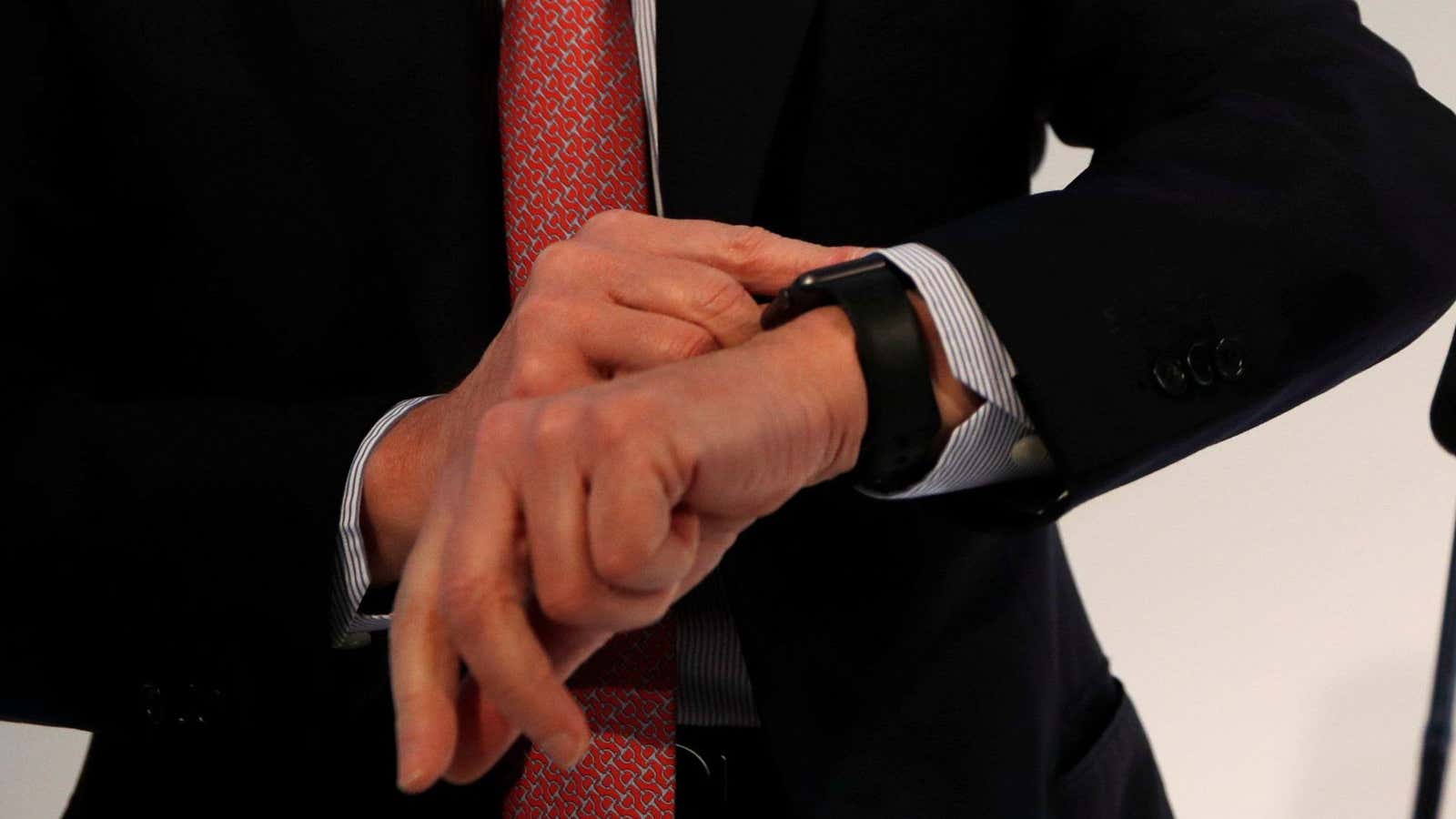When someone acts out under the pressure of a deadline, being snappy, or distant, or less mindful of other people’s needs, that person will often later remark, “Sorry, I wasn’t myself.”
You’d be forgiven for having your doubts.
In fact, people are probably more like their real self, if anything, when they’re feeling rushed, a small study published in Nature Communications suggests.
Selfish people behave even more selfishly when squeezed for time, according to the new research, while “pro-social” people, or individuals who are more inclined to be friendly and cooperative, become even kinder and more helpful.
Playing dictator
The study’s authors, neuroeconomists Ian Krajbich of Ohio State University and Fadong Chen of Zhejiang University in China, reached this conclusion after analyzing the behavior of more than 100 college students from the US and Germany as they played modified versions of “mini-dictator” computer games, which are commonly used in studies meant to analyze altruistic impulses and decision-making processes. In these games, one player can reduce their own monetary reward to help boost their unseen partner’s prize—or not. For instance, you might be asked to give away $1, so your partner can earn $15, or invited to sacrifice $10, so that your partner can gain an additional $2. This is not hypothetical money, either. The participant goes home with cash.
Psychologists have debated why people have widely varying responses to these games— and to life’s opportunities to be selfish or generous. Some studies point to a biologically “set” level of altruism, for instance, or the social distance between the giver and his or her beneficiary, as factors that push us in one direction.
Another theory is that we make such decisions through dual-process thinking—fast or slow. But do we become more or less self-concerned when we think “slowly” rather than quickly and intuitively? Studies have found conflicting results.
“We suspected that the story was more nuanced and that people’s behavioral inclinations vary and are also sensitive to the situations they find themselves in,” Krajbich tells Quartz At Work.
Most of us have an intuitive response when we’re presented with a scenario that puts one’s needs at odds with someone else’s, he argues. And that predisposition shines through in the dictator game: When someone plays dozens of rounds, a pattern emerges. Some people will routinely lean toward prosocial choices, and some will minimize their losses as much as possible. When given very little time to think, he hypothesized, people will fall back on what they’re already inclined to do.
To test that theory, the researchers tweaked the dictator games by manipulating how much time people had to respond to the requests. In some cases, people had just two seconds, not a lot of time to absorb the information.
The results supported their theory. What’s more, both “types” of people—the selfish and the pro-social—were more likely to depart from what came most naturally when they had more time to think.
Krajbich believes that people might enter the game believing that they’re going to behave one way, but in the absence of a deadline, given time to reflect and consider the numbers, “they can think of reasons to go against their bias.”
“Maybe you’re predisposed to be selfish, but see that you only have to give up $1 and the other person is going to get $20,” he said in Ohio State’s news release about the study. “That may be enough to get you to act more pro-socially.”
One more reason to stop and reflect
Admittedly, this is only one small study, but it raises interesting questions and may have some real-life implications.
“Some would argue that if you want people to cooperate, you simply need to pressure them for a quick decision,” Krajbich tells Quartz. “Instead, our findings indicate it depends on the person and what you’re asking them.”
“For example,” he continues, “if you’re trying to get your co-worker to donate to your charity, you need to know if they generally like to donate. If yes, you might want to apply time pressure (e.g. grab them as they’re heading home for the day); if not, you might want to make sure that you have enough time to describe all the details of the charity (e.g. over lunch).”
For office colleagues working together under a tight deadline, his work suggests that taking regular breaks to step back and evaluate your interactions may allow you to overcome an auto-pilot behavior you may not be aware of.Maybe you’re too other-oriented when you ought to protect your own interests, or too self-involved at the wrong times. Exactly how our selfish or pro-social biases are formed, Krajbich says, is not fully understood.
